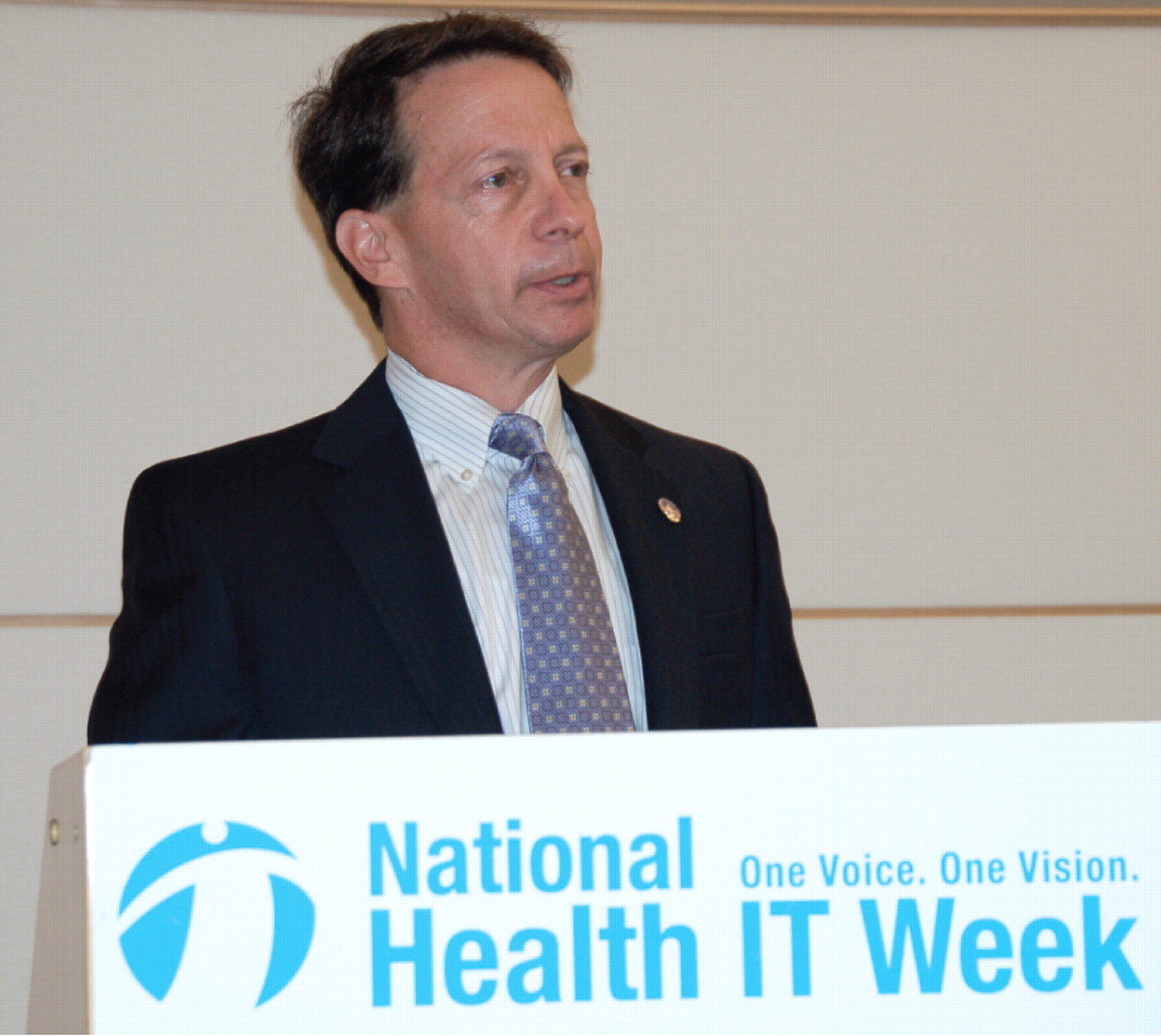Companies that make health information technology products are pressing federal regulators to expedite creation of national regulations on electronic medical record systems—despite continuing concerns by physician groups—maintaining that the promised benefits outweigh the misgivings of critics.
Leaders of the many companies that build and implement health information technology (HIT) systems were in Washington, D.C., in June to lobby Congress and urge regulators to speed up development of rules to implement a federal program aimed at spurring nationwide adoption of digital medical information systems. Physician concerns have helped slow the process of issuing regulations to implement provisions of the American Recovery and Reinvestment Act of 2009 (ARRA, PL 111-5), which included $17 billion in grants to encourage clinicians to use electronic medical records (EMRs)—a central component of HIT systems.
APA and other physician groups have criticized the federal program, in part because of concerns that federal regulators have underestimated the high cost to physician practices of EMR adoption and continuing HIT system maintenance. Physician advocates warn that the true cost to physicians of HIT systems that would comply with all of the proposed regulations could dwarf federal assistance provided through the ARRA.
But the HIT industry, which manufactures and installs costly EMR systems, said such concerns do not warrant further delays in the completion of the regulations and launch of the multibillion-dollar incentive program.
“We need to implement these tools as quickly as possible,” said Barry Chaiken, M.D., chair of the Healthcare Information Management Systems Society, at a June 15 press conference in Washington, D.C. “We believe these goals are not—repeat, not—too aggressive.”
The technology companies emphasized that nationwide adoption of HIT systems would provide a range of benefits to patients and physicians through improved record keeping, reduction in medical errors, and expedited access by medical personnel to critical information that could save lives.
“We want to fundamentally change the way we deliver care,” said David Muntz, a member of the board of trustees of the College of Healthcare Information Management Executives.
The health-technology leaders continue to reach out to physicians, who not only will spend billions of federal and their own dollars on new record systems as part of the federal goal for every American to have an EMR by 2014, but also can provide critical information to their colleagues on which HIT system they prefer. To that end, the HIT manufacturers are also urging federal officials to maintain antitrust exemptions for physicians that would allow them to communicate with each other regarding adoption and implementation of HIT systems.
“Physicians no longer talk about walking away from the technology; now they embrace it,” Muntz said.
The HIT providers also stressed the improvements that they have made to the privacy protections included in their electronic data systems. For example, EMRs now allow patients to view “audit trails” of their records to see who has viewed the information. Physician and patient-privacy advocates have repeatedly warned that existing law and technology standards provide insufficient security and patient control of their health data. This is particularly troubling to mental health advocates, due to the societal stigma often directed at people with mental illness.
Generally, the HIT leaders don't expect additional federal funding beyond the $19 billion in federal incentives for hospitals and physicians that will be provided under the ARRA; however, more federal money could be directed at encouraging adoption of EMRs in specific areas of medicine. For example, Rep. Patrick Kennedy (D-R.I.), co-chair of the 21st Century Health Care Caucus in Congress, introduced the Health Information Technology Extension for Behavioral Health Services Act (HR 5040) in April to provide incentives and grants to mental health care providers and psychiatric hospitals that establish interoperable HIT systems.
More information on the Health Information Technology Extension for Behavioral Health Services Act can be accessed at <http://thomas.loc.gov> by searching on the bill number, HR 5040. 

